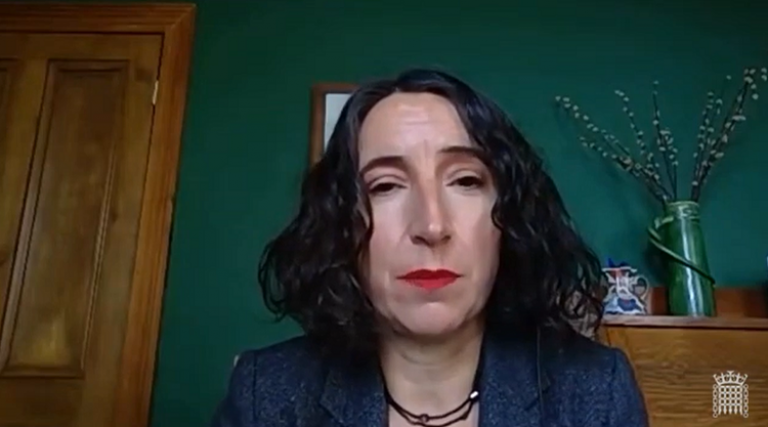Meg Russell gives evidence to PACAC on the proposed Constitution, Democracy and Rights Commission
6 October 2020
Unit Director Meg Russell gave expert evidence to the Public Administration and Constitutional Affairs Committee on the government’s proposed Constitution, Democracy and Rights Commission.

Professor Meg Russell was invited to give expert evidence on 6 October 2020 to the Commons Public Administration and Constitutional Affairs Committee’s inquiry into the government’s proposed Constitution, Democracy and Rights Commission. The Commission, promised in the Conservative manifesto for the 2019 general election, was intended to examine ‘the broader aspects of our constitution’ and ‘come up with proposals to restore trust in our institutions and in how our democracy operates’.
Meg Russell joined fellow witnesses Lord Sumption and Lord Lisvane in a discussion about the priorities for the Commission, how it should function, and what form should it take. You can watch the full session here.
Key points raised by Professor Russell included the following:
- The Democracy, Constitution and Rights Commission could provide a refreshing opportunity to assess the UK constitution in the round. Although recent decades have seen substantial constitutional change and innovation, this has generally taken place in a piecemeal manner. The Commission could enable a more holistic conversation about how powers should be divided between the UK’s democratic institutions, and what checks and balances are needed. These high-level principles should then guide any future constitutional reforms. However, there are some concerns that the logical connection between the issues mentioned in the manifesto is a desire to reduce checks and balances, and strengthen central executive power.
- It is particularly important to address these fundamental constitutional questions in a post-Brexit environment, as the UK’s departure from the EU expands the government’s policy-making scope and potentially alters the balance of power between these core institutions.
- Furthermore, a process which engaged thoroughly and thoughtfully with public opinion on the UK’s constitutional arrangements could help to heal the divisions caused by Brexit both in parliament and among the general public.
- In order to be successful, constitutional design must result in a stable and widely-accepted settlement. Any reforms should not be about ‘winners’ and ‘losers’ but about setting rules of the game that are fair, acting more like a respected referee. There have been some concerns that the proposed Commission was about post-Brexit ‘retribution’ against certain institutions. If that appears to be the case the process will lack credibility, and deepen rather than heal existing divides. The Commission must be seen as balanced, rather than wedded to a particular view.
- This means that the transparency and inclusiveness of the process is key. A cross-party approach, backed up by meaningful public involvement and with sufficient time to gather evidence, deliberate, and formulate conclusions, stands the greatest chance of achieving this. The Commission’s conclusions must last long-term, and the process itself should not be rushed.
- Gauging public opinion on core constitutional principles about the power balance between different institutions is difficult. Very often opinion is driven by short-term policy objectives rather than longer-term and more stable preferences (e.g. support for referendums dipped among Remain supporters post-2016, then increased again with the prospect of a second Brexit referendum, simultaneously declining among Leave supporters). To get beyond these short-term instrumental views requires more than simple opinion polling, and should ideally include careful public deliberation through something like a citizens’ assembly.
- An open discussion about constitutional principles could bolster public trust in our democratic institutions. But if the government wants to increase public trust it also need to temper its own behaviour. There should be an end to briefings against parliament, the courts, the civil service and constitutional regulators, whether from ministers or from anonymous government sources. The government has a duty to maintain faith in our democratic institutions; the Commission cannot rebuild this alone, in the face of negative briefings coming from the government.
Videos from the session
YouTube Widget Placeholderhttps://www.youtube.com/watch?v=Z9zfsO06qbk
Key links
- Meg Russell’s Parliament and Brexit project with UK in a Changing Europe
- The Unit’s work on Deliberative Democracy
- Unit blog: The government’s proposed Constitution, Democracy and Rights Commission: what, why and how?
- Watch the full evidence session.
 Close
Close

